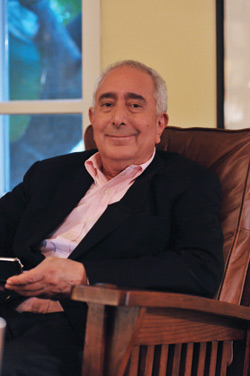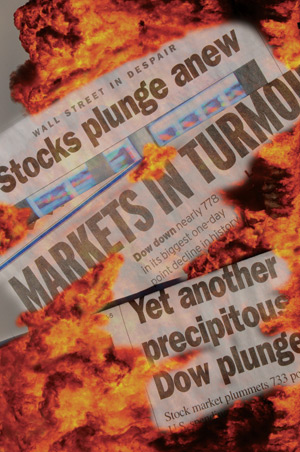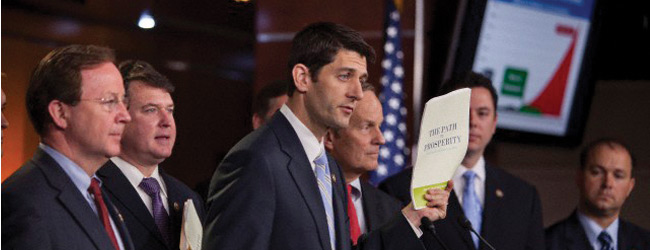You make reference to back-room deals. That segues, nicely, into health care. What is your take on health care?
I don’t think we needed to add this giant Rube Goldberg contraption and smash the whole system. We could have just done what Mr. Nixon, my former boss, suggested, which was to identify the people in society who do not have enough money to buy health insurance and then write a check to buy the health insurance. Let us use Joe Blow from Wisconsin as an example of someone who needs money for health insurance and can’t afford it. An agency could ask Aetna, Blue Cross, Prudential or whoever to create a basic Chevrolet model insurance policy. They could negotiate a cost and send a check to cover the guy. The government could have easily done that. This would be child’s play. Milton Friedman, the greatest economist of the post-war period by far, said that the problem with poor people is that they do not have enough money. The problem with uninsured people is that they don’t have insurance. The solution is to get them insurance instead of just re-jiggering the whole system and making it all an incredibly complicated nightmare.
What do you think the purpose is?
The purpose is self-serving; it is about control and power. I believe this is about President Obama’s immature, naive and not well-thought goals for the economy. In some respect, there is a sinister wish for social control. If you look at all the Obama policies, what is the common denominator of all of them? It is more and more and more social control; control over people, control over businesses, control over states and counties.
Do you think the president is listening? Do you think his administration can hear the public sentiment?
I do not think there’s any subject on which President Obama believes anyone knows better than he does. Mr. Obama believes he knows better than anyone else on any subject and he’s quite mistaken.
Let us shift to something a bit lighter. What’s it like to be Ben Stein?
Mostly, it’s a lot of fun. It is a lot of fun to walk through the airport and have people stop and want their picture taken with me. Many people ask for my autograph. I love to hear when a stranger is happy about some piece of work I did.
What is the downside of being Ben Stein?
Being fatter than I wish, which is not good. Being a lot older than I wish. I have large credit card bills, which is not a good thing. I have a lot of mortgages, which is not a good thing right now. However, there was a time when that was a good thing.
Why do you cross so many cultural divides? Why does everybody love Ben Stein?
Well, I’m lovable. I work at being lovable. I’m just a big, lovable, fat, old teddy bear and people love me and I try to be lovable. I try to be really, really friendly and nice to everybody. Look, I learned from high school, where people learn everything meaningful in their lives, that if you’re likable and friendly, you get the girl. If you’re likable and friendly, you also get the job, you get the money, you get the house, you get the car.
Can you tell our readers about the unique way you became valedictorian at Yale?
I became valedictorian of my class at Yale Law School, class of 70. This was the only time Yale ever elected a valedictorian instead of making the choice by grades. This happened as a result of speaking back to our bullying professor. He was bullying the teachers and the students, and I talked back to him. Nobody else would, and they could not believe that I did. Now, I have to say—I want to be honest here—I think I did it because I was taking some cold medicine; I was kind of high. I will call it cold medicine.
Do you have any new productions coming up? Any books or movies?
I always have new things coming out. My co-author, Phil DeMuth, a very, very smart investment manager and financial planner and wealth advisor, and I have a Wiley book coming out called, The Little Book of Bulletproof Investing: Do’s and Don’ts to Protect Your Financial Life. Wiley is a big, big, big financial publisher and has a series of little books on this kind of investing and that kind of investing. We are doing one on bulletproofing your portfolio in case of severe economic challenges. So, we have that coming out in March. I’m doing a series of five more commercials with the great, great, great, uniquely great, Shaquille O’Neal for Comcast. I’m going to continue doing commercials for a wonderful company called Free Score, an Internet aggregator selling people access to their credit scores for a very low price instantaneously. I write a column for Fortune. I write a column for The American Spectator. I write a column for a very conservative magazine called, NewsMax. I do commentary for CBS news. I do commentary for Fox. I do commentary for CNN. I’m a busy boy. And, I travel. I do a lot of public speaking; speeches are my main love.
 I notice the walls in your home and your office are a collage of famous people that you have met.
I notice the walls in your home and your office are a collage of famous people that you have met.
Yes. I used to have a talk show on Comedy Central after I had my game show and a lot of them are people I had on my talk show.
Who are the standouts in your life? Who are the most interesting people you have met?
By far, the most interesting person I ever met was Richard M. Nixon: a fascinating, interesting, amazing, INCREDIBLY interesting guy—just off-the-charts interesting.
Did you ever have a chance to meet him in his twilight years?
Oh, yes!! I hardly ever met him, except just to pass him in the hall, when I worked for him at the White House. I would sort of tug at my forelock like the humble servitor I was. But then, when he left office, I went down to San Clemente—it was just about the same time I moved out here to become a screenwriter and TV writer—and I would often go down there and visit with him. Sometimes he would talk to me for a couple of hours. We had a great, great, great, great, great time together. He told me things that were so fascinating that I don’t think I will ever reveal them as long as I’m alive—deep insights into the man and deep insights into what he was really like when he believed he could speak in complete confidence. And, since he believed he could speak in complete confidence, I will keep it in complete confidence. But, I never met a more interesting person.
My father was also a fantastically interesting person. My father was a very famous economist and also just a tremendously famous wit and humorist. My sister is very, very interesting. My wife is very interesting. My makeup girl, who’s sitting in the back room, is very interesting. But, Nixon would be head and shoulders. Then it would be Milton Friedman. I know a person who I now get to spend a fair amount of time with, either on the Internet or in person— Warren Buffett. He is a fascinating, interesting guy.
How often do you meet with the Oracle?
Once a year, I get the privilege of meeting him in person for about three hours. However, I communicate with Warren by e-mail quite often. I consider myself very lucky to have that much access to him.
I noticed on walks downtown and to your bank and to the restaurant, no matter where we were, people got excited seeing you. You are truly a famous icon. What is that like when everybody knows who you are?
I love being an icon. I’ll take it and run.
I noticed that even here in Los Angeles, everyone extends his or her arm to shake your hand. What is it like?
It’s great. It’s like living in a small town where everyone knows you, even when the town is not so small.
I shake their hands and I’m happy to do it. Unless I’m late for an airplane, I will always stop and shake hands and get my picture taken with someone. I love meeting people and finding out about them. When I am on the plane, I love to find out all about whoever is sitting next to me. I like to talk to them about their lives. I like to talk to the flight attendants about their lives. I am really interested in people in general.
What are the negatives that go with being an icon?
I suppose one problem is that, if I ever did something really bad, the news media would be all over me. I’m hoping not to do anything really bad or, at least, I’m hoping if I do anything really bad, for the media not to know about it. Because I’m sure some would REALLY, REALLY like to take me down if they could.
What kind of backlash did you get with the “Expelled: No Intelligence Allowed” movie?
The movie was saying that there was academic suppression of people who questioned Darwinist theories and Neo-Darwinists. We don’t really question Darwinism; we question Neo-Darwinism. Darwin, himself, said it was entirely possible that God had a role in the creation of the universe and the operation of the universe. The Neo-Darwinists say, no. No God, no way, no how. I got tremendously angry mail and a nasty, vicious review in the New York Times. I think that’s really what caused me to lose my column in the New York Times. I had a column in the New York Times. I can’t remember how long I had it but, I think, for about five years. They got a barrage of angry mail from Neo-Darwinists who were furious with me about “Expelled: No Intelligence Allowed.” It got a lot of attention and really, really, really, really upset the Neo-Darwinists. Plus, they did not like the fact that I was criticizing Obama so much. But, they claimed that they fired me because I did too many TV commercials—that’s just B.S. if you’ll pardon my speech. It’s nonsense because they not only knew I was doing it, but they asked me for souvenirs from the commercials.





Interesting interview. I would have also liked to heard what Bens thoughts were on the economic stimulus and weather or not it was really working. Like this guy did http://blog.heritage.org/2010/02/24/cbo-report-was-pre-ordained-to-show-the-stimulus-succeeded/